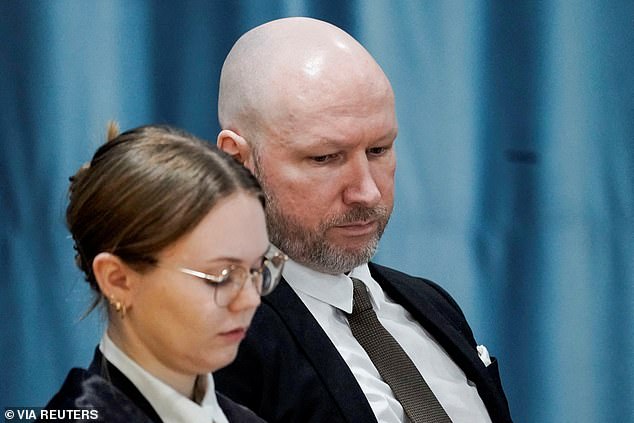Neo-Nazi killer Anders Breivik, who sought parole just 13 years after killing 77 people in two attacks, will remain behind bars despite the court noting positive changes.
A Norwegian court on Wednesday rejected parole for right-wing extremist Anders Behring Breivik, 45, with his lawyer saying it was “not a surprise.”
Oystein Storrvik said the decision to reject Breivik’s parole was a predictable outcome, regardless of the fact that the court recognized “positive developments” for his client.
On July 22, 2011, Breivik detonated a truck bomb near government offices in Oslo, killing eight people, before heading to the island of Utoya.
There, disguised as a police officer, he shot dead 69 people, mostly teenagers, who were attending a Labor Party youth summer camp.
He said he had killed his victims because they embraced multiculturalism.
Breivik was sentenced in 2012 to 21 years in prison, which at the time was Norway’s harshest sentence.
But the penalty can be extended as long as it is considered a threat to society.
Anders Behring Breivik, 45, was denied parole after killing 77 people in two attacks in 2011. Pictured: Breivik and lawyer Marte Lindholm attend a court hearing at Ringerike prison in Tyristrand , Norway, on January 8, 2024.

What the police believe is that the gunman Anders Behring Breivik walks with a gun in his hand among the corpses on the island of Utoya. Disguised as a police officer, Breivik went on a 90-minute killing spree in which he slaughtered dozens of people, including children as young as 14.
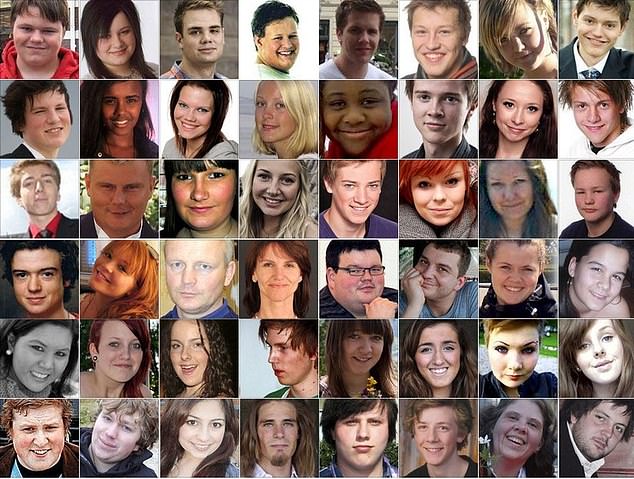
Breivik was sentenced to 21 years in prison, the harshest sentence possible under Norwegian law, for killing 77 people in a bomb and gun attack in July 2011. Pictured: Victims of the attack
Breivik requested parole for the second time on November 19, where he promised to be a “tremendous help to the Norwegian state” if his request was granted.
Under Norwegian law, the extremist can apply for early parole once a year after serving 10 years of his sentence.
His first application for parole in January 2022 was denied, with the court finding there was a “clear risk” that he would resume the behavior that led to the July 22, 2011 attacks.
His lawyer also told reporters that this time his request was “not as likely.”
Breivik, who has used his previous court appearances to express extremist views, appeared last month wearing a black suit and tie and carrying a sign with various political messages.
In a brief statement to reporters before proceedings began, Breivik said: “If I am given an opportunity to exit in the future, I will be of great help to the Norwegian state, and that is something I take very seriously.” .
‘Alternatively, I can keep my mouth shut for the rest of my life. But that depends on the judge.
When asked by a journalist if he regretted his actions in 2011, Breivik responded: “I will talk about that in my explanation.”
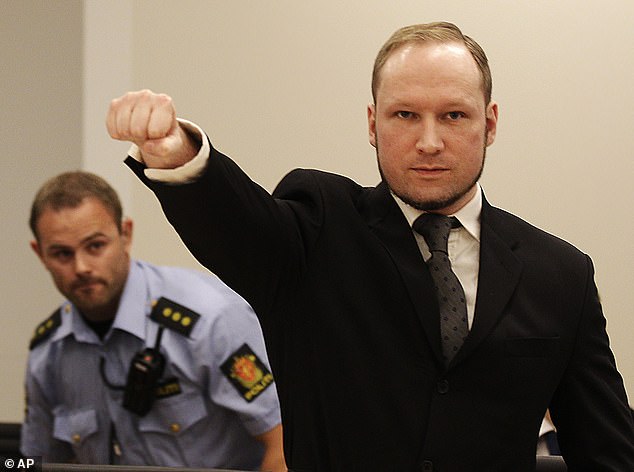
Breivik in the courtroom in 2012. He was sentenced that year to 21 years in prison, extendable as long as he is considered a threat to society.
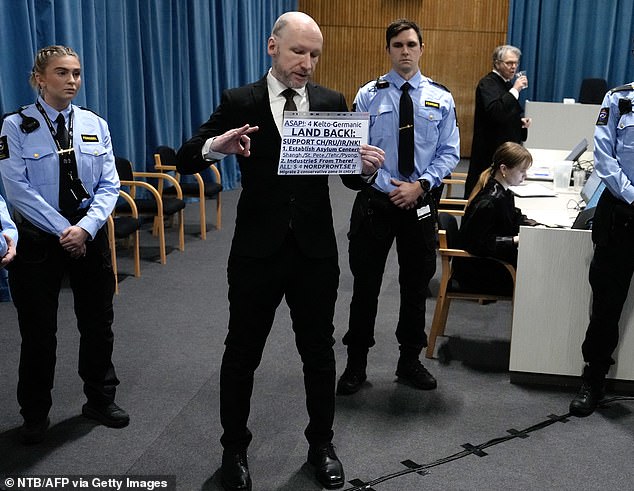
Breivik, who has used his previous court appearances to express extremist views, appeared in court last month wearing a black suit and tie and carrying a sign with various political messages.
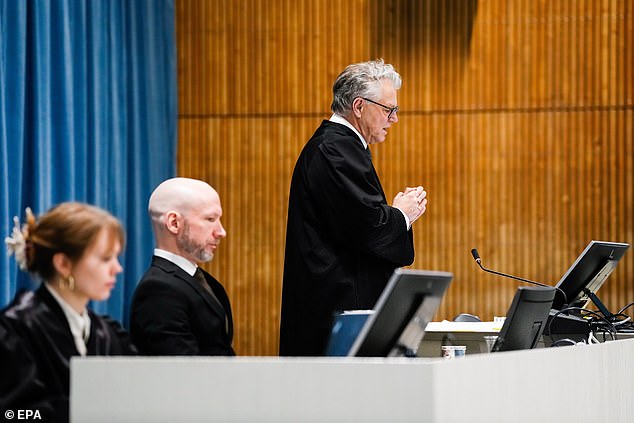
Breivik’s lawyer Oystein Storrvik (right) speaks during the third day of the parole petition hearing for Anders Behring Breivik (center) at the Ringerike, Asker and Barum District Court, in a prison gymnasium. Ringerike, Tyristrand, Norway, November 21, 2024.
Storrvik said: “We want the court to consider his progress, he has the right to… develop and have better living conditions so that he can have some kind of future.”
In February 2024, Breivik lost a lawsuit brought against the Norwegian state in which he argued that his prolonged isolation was a violation of the European Convention on Human Rights, which prohibits “inhuman” and “degrading” treatment.
The state argued that its strict but comfortable conditions were justified due to the “extreme risk of totally unrestrained violence.”
Storrvik said outside psychologists had conducted a comprehensive evaluation of Breivik for the first time in 12 years and would present their 109-page report to the court.
The lawyer did not want to reveal his findings, but said: “I think it may be useful for us.”
Prosecutor Hulda Olsen Karlsdottir told news agency NTB that the report had not changed her mind.
“The new assessment has not changed the prosecutor’s opinion on the issue of his release,” he said.
During court hearings earlier this year, Breivik claimed he was depressed and addicted to Prozac, and would sometimes burst into sobs.

